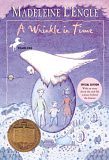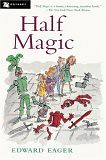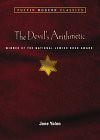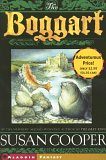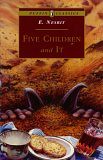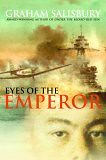FYI,
Flickr and Blogger aren't playing nice at the moment, so book covers should come later...
Before I get to the reviews, FYI, the new Georgia Nicholson book,
Love Is a Many Trousered Thing, is slated to come out in May and available for pre-order now on Amazon. Woot!
Also, dear, dear Amazon. I have told you how much I am in lurve with
Jasper Fforde , why then, did you fail to tell me back in August that he had a NEW Nursery Crime book out,
The Fourth Bear: A Nursery Crime. I depend on you for such details!!!! And I didn't know! And I feel sad. Well, I was sad that you had betrayed my heart in such a way, but then I got a copy at the library (which was easy to do, given that, you know,
I work there.)
Anyway, y'all don't want to hear me, you just want to dance.
First off, this August, my plan was to read Barbara Tuchmann's Pulitzer Prize winning book,
The Guns of August, about the first month of WWI. Well, I started it in August but with all the other reading I've had to do for work and school, I didn't get to actually finish it until Saturday. Given that Saturday was Armistice Day, I find it appropriate. This book has been critically acclaimed a million times and I don't have much to add. It was well worth the read and an immensely fascinating look at how paranoid the Kaiser seemed and how steadfastly those in charge committed to a plan and refused to be swayed, despite the consequences.
Interestingly enough, when outlining the causes of war, the assasination of Archduke Ferdinand barely garned a sentence. To be fair, when outlining the scope of the book, Tuchmann states that she wasn't going to touch the Balkan question, as to address it fairly would be a whole book in and of itself.
This book was obviously written in a time when the average reader had a more extensive knowledge of European History. Now, I'm fairly well trained in history, but I've only had two college classes in European history (one was focused soley on England and the other was just general Europe) and I was constantly looking things up. (For instance, there were all these references to animousity between France and Germany in 1870, but never gave it a name, which made it hard to look up. It was the Franco-Prussian war. Luckily, I live with a British History scholar, and he knows a lot more about general European stuff than I do.) Also, the maps are very focused and it can be hard to see where the area of detail was in the greater European context. (At point I was looking at a map of airport routes in my inflight magazine trying to figure out what bit of German coast I was looking at.)
That said, this book is the perfect reason to buy yourself an
Historical World Atlas.
Also, Tuchmann is very funny. She often slips in dry little comments, such as this one from p. 267
German soldiers, posted as informers, were found dressed as peasants, even peasant women. The latter were discovered, presumably in the course of non-military action, by their government-issued underwear.But for now, let's talk about some YA war books, shall we?
By far, the hands-down best YA war book I've read recently is
Kipling's Choice by Geert Spillebeen. A fiction account of John Kipling's (
Rudyard Kipling's son) last moments, it tells the story of a young man desperate for the glory and honor of war.
Rudyard had always wanted to serve in his Majesty's service and was denied entry due to his poor eyesight. His hopes and dreams trasnfered to his only son, John. His grades weren't good enough to go to the best naval academies, but his gets into an acceptable army school. But John has his father's eyes and the lifestyle befitting the priviledged sons of Britian's elite...
When war breaks out in Europe in 1914, Rudyard Kiplin is one of the loudest voices calling for British involvement. WHen England joins, he leads the recruitment calls. It breaks his and his son's hearts that John cannot be in the first wave, especially as his friends keep going over. He still feels this way even as his friends start dying. Rudyard pulls every string he can to get his son a commission.
John's first battle is also his last. This heart-breaking tale is framed as his life flashes before him somewhere in Belgium.
Spillebeen grew up near Flanders and has written several YA novels about the oft-neglected WWI, but as far as I can tell, this is his first to appear in English. There are several aspects that set this book apart from the rest of the genre. The bulk of the story takes place before the war and before John deploys, but because of how the story is framed, it transports you to the battlefield horror on a regular basis. Because Kipling is killed so early in his army career he never loses that pre-war optimisim--life never gives him the chance to turn battle hardened and cynical--which is rare in war books.
Another difference between
Kipling's Choice and most others lies in John's societal status. He is not a grunt. He's not escaping an impoverished background--even in boot camp he takes his friends partying in London's most exclusive clubs. His father's wealth and status and fame means John starts as an officer. He is not an everyman, but he'll still die like one. The book also follows the reaction of John's parents in greater detail than the standard epilogue. I highly recommend this book and hope that we'll see more translations of Spillebeen's work.
Another WWI book--also with interesting framing--is Michael Murpago's
Private Peaceful. Thomas (Tommo) Peaceful grew up living on an estate (but the son of a worker, not fortune like Kipling) in England. His older brother Charlie has always looked out for him. The first half of the book deals with the day to day struggles of being poor and the estate owner is mean and Charlie and Tommo fall in love with the same girl... WWI breaks out and the brothers join up, Tommo lying about his age to be eligible.
The story then shifts to the general horros for war and the specific horros of trench warfare. The story is told as Tommo stays up all night (for a reason we find out at the end--he's not on watch, despite wahat the book jacket says!) The chapters are labeled with the time of night as he stays up and remembers.
Unlike
Kipling's Choice,
Private Peaceful follows the more common form of "bright-eyed poor boy becomes a hardened man by witnessing the horrors of war" but
Peaceful is much better than most. My main complaint is the relationship between Charlie and Tommo. At it's worst, Tommo gets pissed off when he realizes that Charlie has one Molly's heart. But these emotions are fully explored and seem to quickly fade away. Generally, Tommo idolizes Charlie and Charlie can never ever ever ever do wrong. It just doesn't make sense, nor does it ring true and sours the rest of the story.
The other complaint, which is not my own by I'll pass it on anyway, comes from a fellow librarian, and that is that most of the pre-war plot is supposedly lifted directly from some classic mini-series. Now I haven't seen it and can't even remember the name, but I thought it was worth mentioning.
Final verdict? Good, but no
Kipling's Choice.
Skipping ahead a generation, we land in WWII with
B for Buster by Iain Lawrence.
The Kakabera Kid lies his way out of his small Canadian town and into the British Airforce. Instead of being the 16 year old son of an abusive drunk, he is now an 18 year old orphan. He loves to fly and one day dreams of being a pilot, not just the wireless operator. He also sees his adventure as parallels to his comic book character heroes.
He's desperately afraid of being found out as being too young and avoids hanging out with his crew, lest his actions give himself away. (Of course, his flight crew just thinks he doesn't like them.) Once they start flying missions, he befriends the pigeoner as the only person he can talk to about his extreme fear of being shot down and dying.
This book is meant to illuminate a long forgotten aspect of the warr--the role of pigeons in the BAF. Flights carried homing pigeons so if they got short down (and survived) or had to bail out, they could write a message about where they were and get rescued. The problem is that this is where Lawrence take sthe most historical liberaties. These are all countered in his ending historical note, but hte fact that he's writing this book to tell this story but messes with the story? It completely detracts from the story and a better story could have been told without these changes.
However, the best part was the descriptions of burning German cities. Just the sense of fire and destruction and the questions of how anyone could survive such a horror (and they didn't even go to Dresden) are questions that are treated very subtley and well. It really comes to a head when the flight crew goes down to London and gets caught in the Blitz... what makes this show well done (I think) is that it's not overly-dwelled upon.
Another book about a little known episode of WWII, and one that is done much better is Graham Salisbury's
Eyes of the Emperor. Hawaii resident Eddy Okubo is sick of hearing about "The Japanese Problem"--if it comes to war, will those of Japanese descent be loyal to the US? Or to Japan? After his family is targeted, Eddy lies his was into the army to prove where his loyalties are-- the US.
After Pearl Harbor, when it does come to war, Eddy and the other Japanese-American soldiers aren't allowed to fight. At first, they're even held prisoner! Eventually Eddy and some of the other Japanese-American soldiers are taken to Mississippi (on the journey, they're not allowed to open the shades because people would freak out at seeing a "car full of Japs".) In Mississippi they're stuck on a desolate island as part of a dog training program. Japanese people, supposedly, smell differently than other people. Eddy and his friends are being used as bait--their service to their country was to be hunted down and attacked by dogs.
Strikingly told in Eddy's voice this is a well-done account of a true episode in American history. My one complaint is that Eddy's speaking voice/grammar/sentence construction doesn't match his inner, narrative voice at all, which can be a bit jarring, but he doesn't talk a lot, so it's a minor complaint.
Jumping back a few more wars, I recently read
The Red Badge of Courage by Stephen Crane for the first time.
Um... the coolest part about this book is that I read it through
DailyLit, which is awesome. (Currently, I'm slogging through
War and Peace.)
Crane paints well the bravado and fear of war as a young boy marchs off to war. It's not as introspective as the other ones I've discusses, and really, what can I say that generations of high school students haven't said already? I have nothing really to add nor profound to say.
Overall these books are all pretty good and I do recommend all of them.
Kipling's Choice is by far and away the best, but these are all exemplary titles. ATTENTION TRANSLATORS! I WANT MORE GEERT SPILLEBEEN!


